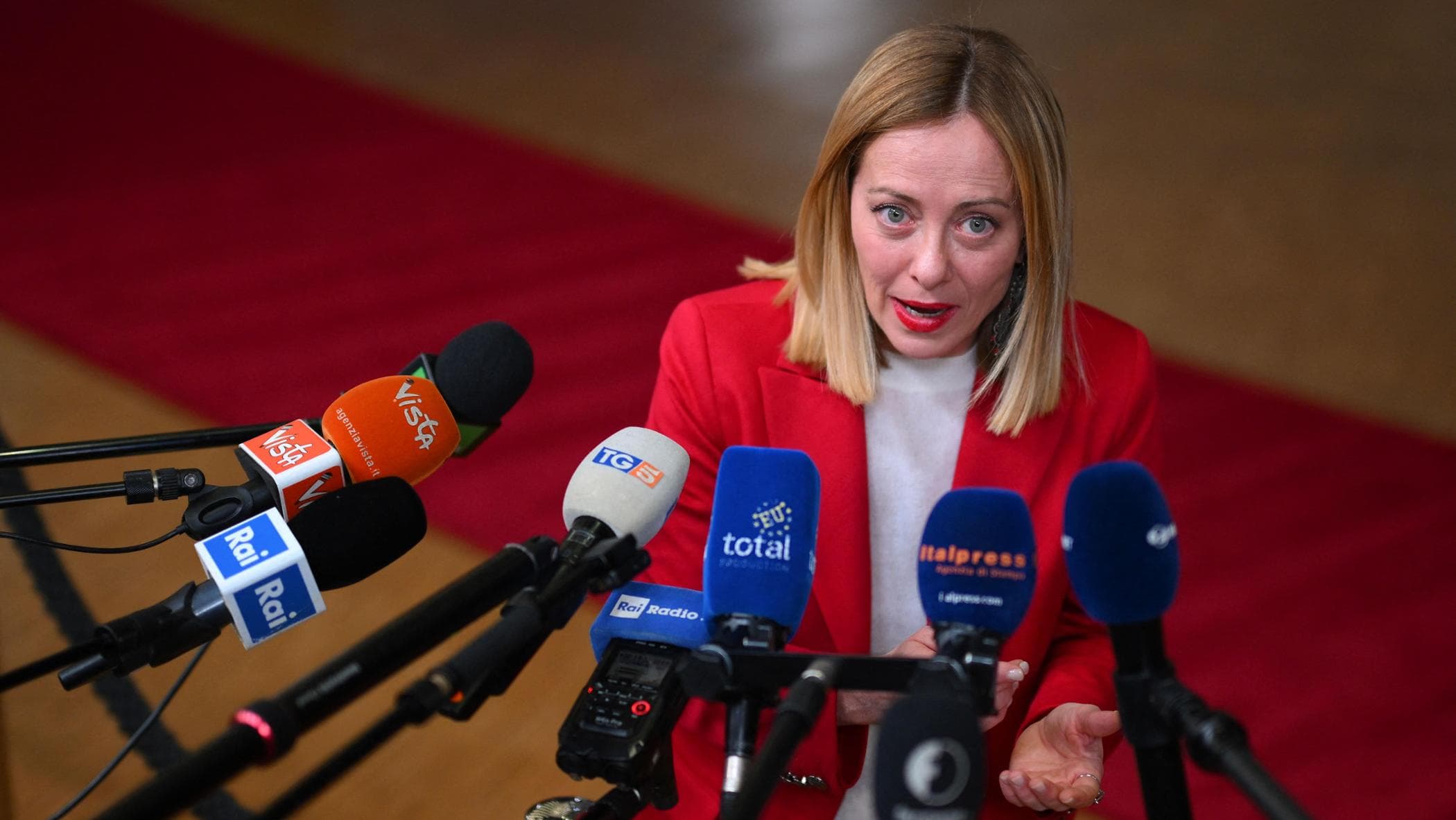Political Clash: Meloni vs. Scalfari on Ventotene – A Deep Dive into the Italian Debate
Italy's political landscape is once again ablaze with controversy, this time centered around a heated exchange between Prime Minister Giorgia Meloni and veteran journalist Eugenio Scalfari regarding the historical significance of Ventotene. This seemingly small island holds immense symbolic weight, fueling a debate that reflects deeper ideological divisions within Italian society. This article delves into the specifics of the clash, its implications, and the broader context of Italian politics.
The Spark: Meloni's Ventotene Visit and Scalfari's Critique
Prime Minister Meloni's recent visit to Ventotene, an island known for its historical importance as a location where the Manifesto di Ventotene was drafted – a document advocating for a federal Europe – ignited the controversy. Her visit, intended to commemorate the manifesto's significance, was met with sharp criticism from Scalfari, a prominent figure known for his leftist views and long journalistic career.
Scalfari, in a widely publicized interview, accused Meloni of misinterpreting the spirit of the Manifesto di Ventotene, arguing that her right-wing policies directly contradict its core principles of European unity and social justice. He highlighted the manifesto's emphasis on democratic values and social equality, contrasting it with what he perceives as Meloni's nationalist and conservative agenda.
Key Points of Contention:
- Interpretation of the Manifesto: The core disagreement lies in the interpretation of the Manifesto di Ventotene. Meloni emphasized its focus on European unity, while Scalfari stressed its commitment to social justice and democratic principles.
- Nationalism vs. Europeanism: Scalfari accused Meloni of prioritizing Italian nationalism over European integration, a stark contrast to the manifesto's vision of a united Europe.
- Social Policies: The differing stances on social issues, particularly regarding immigration and economic equality, are also central to the disagreement.
The Broader Political Context: Italy's Shifting Political Landscape
This clash is not simply a personal disagreement; it represents a larger struggle within Italian politics. Meloni's Brothers of Italy party, representing a right-wing populist movement, has significantly shifted the political center in Italy. This has led to increased tensions with traditional left-wing and centrist forces.
The debate over Ventotene reflects the broader ideological battle between:
- National Populism vs. European Federalism: Meloni's approach emphasizes national interests, while Scalfari champions the ideals of European integration and federalism as outlined in the manifesto.
- Conservative Values vs. Progressive Ideals: The clash highlights the fundamental differences between conservative and progressive viewpoints on social, economic, and political issues.
The Significance of Ventotene: Beyond the Political Rhetoric
Ventotene's significance transcends the current political debate. The island holds a crucial place in European history as the birthplace of the ideas that shaped the European Union. Understanding the Manifesto di Ventotene and its context is crucial for grasping the evolution of European integration.
For further reading on the Manifesto di Ventotene, we recommend exploring resources like [link to a relevant academic article or historical resource].
Conclusion: An Ongoing Dialogue?
The Meloni-Scalfari clash over Ventotene is more than just a political spat; it's a symbolic representation of Italy's evolving identity and its place within the European Union. The debate underscores the need for open dialogue and a deeper understanding of the historical context surrounding the island and the Manifesto di Ventotene. It remains to be seen how this controversy will shape the future of Italian politics and its relationship with the broader European project.
Keywords: Giorgia Meloni, Eugenio Scalfari, Ventotene, Manifesto di Ventotene, Italian Politics, European Union, Nationalism, Populism, Federalism, Italian History, Political Debate, Right-wing, Left-wing.
